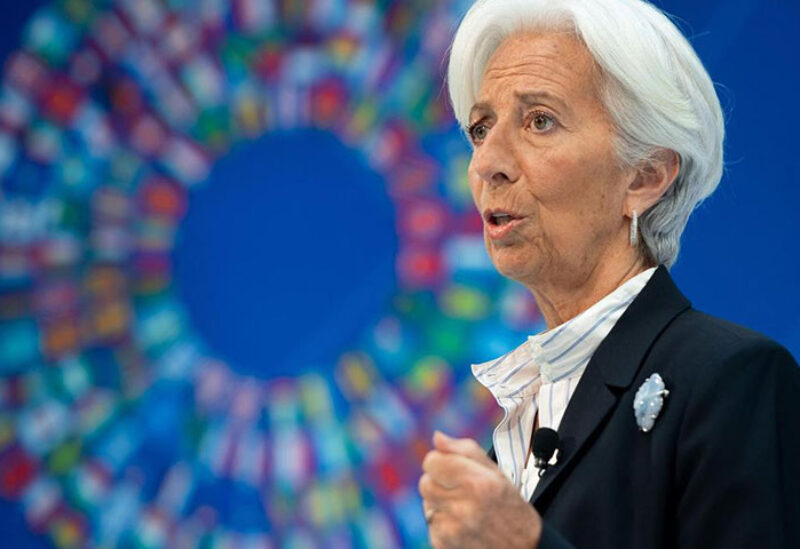
ECB president Christine Lagarde
The European Central Bank kept its stimulus package and interest rates unchanged on Thursday as it pledged once again that the pace of purchases under its pandemic bond-buying program will be “significantly higher” during the second quarter.
ECB president Christine Lagarde held the pandemic emergency purchase program (Pepp) at $2.3 trillion, following a $602 billion boost in December, and reiterated that it will run until at least March 2022, or “until it judges that the coronavirus crisis phase is over”.
“The Governing Council expects purchases under the Pepp over the current quarter to continue to be conducted at a significantly higher pace than during the first months of the year,” the ECB said in a statement on Thursday.
Ms Lagarde said in a press conference that the economic outlook in the short term “remains clouded by uncertainty” as Europe is caught up in the latest Covid-19 wave with lockdowns continuing “to constrain economic activity”.
Although the bank eventually expects “a firm rebound” later in the year, Lagarde underlined that for now the bank is nowhere near withdrawing any of its extraordinary measures, even if inflation jumps later this year.
Inflation is expected to temporarily climb above 2 per cent annually in the later part of the year, with Lagarde attributing the recent increases in inflation to “idiosyncratic and temporary factors” and that underlying inflationary pressures “remain subdued.”
While economic conditions are currently bleak, the acceleration of the vaccination roll-out offers hope of an economic revival during the summer months, said Pablo Shah, managing economist at the Centre for Economics and Business Research.
“Although the release of pent-up demand by consumers as lockdown restrictions are lifted could generate inflationary pressures, the ECB is unlikely to tighten monetary policy this year given the fragility of the economic recovery and the gap between the current level of inflation and its target of “below, but close to, 2 per cent” inflation over the medium term,” Shah said.
At its last meeting in March, the ECB pledged to significantly step up asset purchases as it looks to keep borrowing costs for eurozone companies, households and governments favorable during the pandemic.
Since the March meeting, officials have spent an average net €17 billion per week under the pandemic program, up from about €14bn per week in the first weeks of this year.
Thursday’s decision was considered a foregone conclusion by analysts, but the ECB’s next crucial decision is due on June 10, when policymakers have to decide whether to let emergency bond purchases fall after a surge this quarter.
Lagarde said the risks were “on the downside” in the short term and that the bank stood ready “to adjust all its instruments” if the situation calls for it. Over the longer term she called progress in ramping up the vaccination programme “encouraging”. Europe’s vaccine roll-out has lagged that in the US and the UK.
“The flexibility of purchases over time, across asset classes and among jurisdictions will continue to support the smooth transmission of monetary policy,” the ECB said.
“If favourable financing conditions can be maintained with asset purchase flows that do not exhaust the envelope over the net purchase horizon of the PEPP, the envelope need not be used in full.”
Naeem Aslam, chief market analyst at Think Markets, said there were no “fireworks” at the ECB meeting, with the euro still holding on to its gains on the back of the central bank’s position.